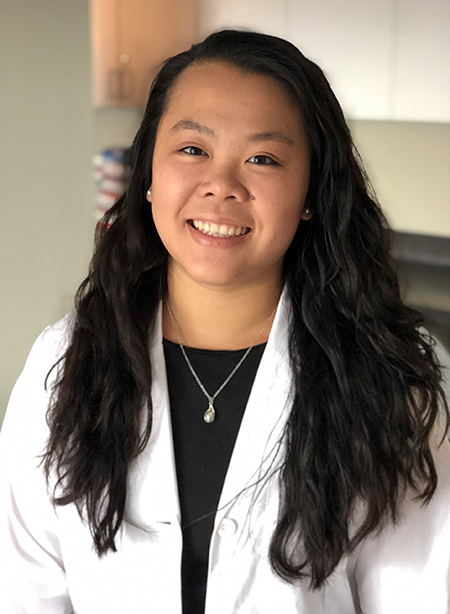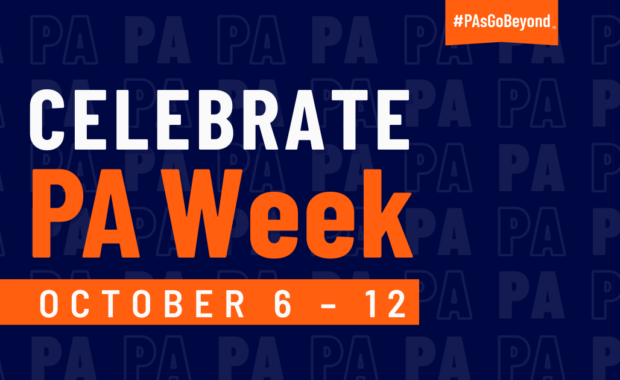10 Tips and Tricks to Save on Your PA School Budget
Victoria Ho, PA-S, Shares Her Personal Money-Saving Ideas
March 11, 2021
By Victoria Ho, PA-S

Victoria Ho is a second-year PA student at Sacred Heart University in Stamford, Connecticut. Like many of her fellow students, Ho finds herself on a tight budget during PA school. She shares the financial tips and tricks that help her stick to a budget during PA school. Her recommendations are practical and attainable for all PA students, so take a page out of Ho’s budget and get started with your own saving.
- Make a budget, then stick to it!
This is probably the biggest and most frequently talked about advice when saving in PA school because…it works!
I recommend creating a budget before PA school. Costs really add up between tuition, rent/utilities, school supplies, and extraneous things that one may need that is not listed on the “tuition list.” You can keep track of your spending with a spreadsheet or with an app on your phone. Set aside fixed expenses such as rent, utilities, tuition, and travel expenses. Once you have the cost of these fixed expenses, you can begin to see what you have left for other expenses that may fluctuate from month to month: things like food, school supplies, and “fun” money.
Establish a limit on what you want to spend and keep to your budget accordingly. Once you get into the swing of budgeting it gets easier and more manageable. Keeping a budget not only allows you to see how much you are spending each week or month but shows you how much is left for the rest of the year and for those “rainy day” expenses.
[Grow your network, find a mentor, and more – join or renew your membership today]
- Live with a roommate.
Living with a roommate helps in many ways: academically, emotionally, and financially! I live with a classmate and, besides being able to discuss classes and topics that we are learning together, it cuts the cost of living in half. Make sure you and your roommate have a conversation about how to split rent, utilities, and whether or not you will share items like groceries. An easy, friendly conversation at the beginning sets expectations and makes for a smoother roommate relationship.
- Meal prep for the week.
Meal prepping will save you SO MUCH money! I cannot stress this enough. Not only does meal prepping help keep you healthy (well, depending on what you are making), but it keeps you on a budget. I personally meal prepped on Sunday mornings. I made breakfasts, lunches, and dinners for the entire week. I gave myself the weekends off from meal prep since I was usually home. Having an idea of what I would be eating and being able to take an already-ready container out of the fridge saved not only time, but it deterred me from the tempting take-out menus on the fridge. My meal preps were not complicated. For breakfast, I would prep hardboiled eggs, oatmeal, yogurt with granola, fresh fruit, or on-the-go fruit smoothies. For lunch, I made sandwiches, salads, wraps, or I would package up leftovers from dinner. Dinner was always a combination of veggies, meats, and grains. It took me about two hours on Sunday mornings and would save me time – and money – later in the week.
[5 Mental Health Tips for PA Students]
- Grocery shop from a list – and not while you are hungry!
The worst thing to do while grocery shopping is shopping without a list and on an empty stomach. Make sure you grab a snack before heading on out to do your grocery shopping. It will prevent you from making those impulsive hungry buys. Prior to my shopping trips, I scroll through my grocery store’s weekly circular (check with customer service and become a member at your local grocery store) to find what is on sale and if I can use any coupons. I check for member-only offers and deals as well. I make my shopping list after I check my fridge and pantry and list the prices and coupons as well. That way, when I get to the store, I make sure I stick to my list and try to get in and out as quickly as possible. My list keeps me focused on the groceries I really need and helps me avoid overspending on extraneous food.
- Collect some pocket money.
PA school is challenging and finding time to work is almost impossible. Many programs discourage students from working, but that does not mean you cannot make money during time off. If you can continue your prior-to-PA-school job or work during breaks or holidays, that may be worth pursuing. If that is not an option for you, you can make some money by selling any extra “stuff” you may have around that you do not use anymore. You can sell on eBay or other resell sites such as Craigslist or Facebook Marketplace. If you have clothing, try ThredUp or Poshmark. Consider selling textbooks as well; often, underclassmen, pre-PAs, or other PA students may be willing to buy them.
[What They Didn’t Tell Me in PA School: Five Months to Start Working]
- Get creative when it comes to textbooks.
Unfortunately, PA students cannot get around buying textbooks. When you get your list of textbooks, check to see if there are free copies online – either as a PDF or through an app. Additionally, many universities have partnerships with publishing companies so your school library may already have free access to required textbooks. If you prefer physical copies of textbooks, look on Amazon or eBay and ask upperclassmen if anyone is selling their used books. Remember that “used” books are often in great condition and a fraction of the cost. Book rentals are another option and can be found through Amazon or Chegg.
- Apply for scholarships.
Scholarships are FREE money. When it comes to graduate school, there tend to be fewer scholarships available, but it does not mean that it is not worth researching and trying to apply. Research national and state PA organizations, like the PA Foundation and your state chapter. Other scholarship opportunities may come from other communities that you are part of. For example, there are scholarships for women in STEM, or scholarships through specialty organizations such as the Association of Family Practice PAs. It may take some time identifying these opportunities – and you will have to write a few essays, of course – but getting scholarship money is well worth it.
[Learn more about the PA Foundation’s Student Scholarships]
- Search out student discounts.
National and local stores and restaurants often offer student discounts. A 10% student discount on dinner out will really add up over an academic year. Ask around at your PA program – there may even be someone with a list of local establishments who offer student discounts. Most businesses just need to see a student ID. In addition, national stores and companies may offer student discount as well. For example, Amazon offers Amazon Prime to students who sign up using a .edu email account. Other businesses that offer student discounts include L.L. Bean, Charlotte Russe, Nike, PINK, AMC Theaters, Apple, Office 365, Spotify, Hulu, Showtime, and the Wall Street Journal to name a few. Restaurants such as Buffalo Wild Wings, Chipotle, Dairy Queen, Arby’s, and Burger King also provide student discounts.
- Use apps and money-saving websites.
Nowadays, there are many apps out there that save you money without much effort. Apps like Fetch Reward or Ibotta give you points back for scanning your grocery receipts. Points can then be exchanged for gift cards or cashback. While it may seem like only a few points here or there, be consistent! You can get great gift cards just for taking a picture of your receipts. Another website that helps save money is Rakuten. Create an account, download the web browser and/or browser extension, and then shop online as you normally would. Rakuten gives you cash back for shopping online or in-store. You will get a check every few months with your savings. The cash back percentage ranges depending on the store and day, but if you are buying things anyway, getting cash back does not hurt.
- Ask for what you need.
There are, generally, a few times a year when families and friends want to give you gifts (birthdays, holidays, big life events). Instead of getting something you may not ever use, why don’t you ask for what you know you will need? There are some PA school necessities that we all need – stethoscope, suture pads, a sturdy mug even! I am guessing your aunt who you do not see very often would love a gift suggestion from you. Make a list and share it with your parents, close friends, and other gift-givers in your life. You will get something you need – and will use!
Disclaimer: Author has no affiliations to the companies or businesses mentioned above. Mention of companies and business are based off personal experiences.
Victoria Ho is a second-year PA student at Sacred Heart University in Stamford, Connecticut. Connect with her on Instagram @vho2012.
You May Also Like
9 Tips to Pay Off Your PA School Loans
Worksheet: Creating a Budget (Login required)
PA Foundation Student Scholarships
What They Didn’t Tell Me in PA School: Five Months to Start Working
Thank you for reading AAPA’s News Central
You have 2 articles left this month. Create a free account to read more stories, or become a member for more access to exclusive benefits! Already have an account? Log in.



